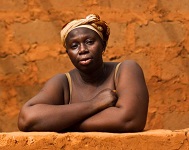The UN’s International Fund for Agricultural Development (IFAD) has developed two new public-private partnerships to enhance access to cheaper, faster and safer remittances, the hard-earned money sent home to Senegalese by migrant workers.
New partnerships aim to increase access to digital and financial services and products across rural areas of Senegal. “Remittances are a lifeline for rural people. Mobile channels offer a great opportunity for many underserved areas in Senegal to be fully able to access finance,” said Pedro de Vasconcelos, Manager of IFAD’s Financing Facility for Remittances.
Through the PRIME Africa initiative, co-financed by the European Union (EU), IFAD is partnering with In Touch, a Senegalese pioneering fintech, with presence in 14 countries and specialized in payment solutions, and Orange Money, a mobile money operator, to foster low-cost mobile to mobile remittance services in underserved rural areas, by extending a sustainable co-branded agent network. The partnership targets the France-Senegal corridor which channels one-third of remittances to the country. In Touch will be building upon the network of Orange Finances Mobiles Sénégal (OFMS) and mobile-enabled remittances initiated from Orange Money in France (OMF).
On the second partnership, IFAD is strengthening its existing collaboration with MFS Africa, to enable digital money transfer operator to send money directly into mobile wallets. Paysend and Afrimoney are the. MFS Africa partners based in Europe and The Gambia respectively. Orange Money will be the pay-out partner in Senegal.
The average price of sending money to Senegal from France and Italy is relatively low at 4 per cent (Q3 2022), close to the 3 per cent target set as part of the Sustainable Development Goal number 10 – reducing inequality within and among countries.
“There is still room to help senders save money on remittance costs through greater use of end-to-end digital channels and increasing the convenience of receiving remittances into mobile wallets,” said Pedro de Vasconcelos. “Indeed, in Senegal, while almost half of adults have mobile money accounts, less than 5 per cent of inbound remittances were received through a mobile money account,” he added.
Senegal has a historical reliance on the money sent from its citizens living abroad. Remittances averaged roughly 10 per cent of GDP over the last decade. Last year, international remittance flows reached US$2.9 billion, and increased by 7 per cent (year-on-year) despite the constraints linked to the COVID-19 pandemic.
“There are 124 rural Senegalese communities with high migration rates, receiving significant volumes of telephone calls from France but with a large gap between Orange SIM card holders and Orange Money mobile account users. OFMS’ penetration rate in rural areas was 13 per cent in 2021. One of the project objectives is to double the use of mobile money accounts through international transfers in these rural localities,” said Cheikh Tidiane Sarr, Director General of OFMS, speaking about how digital remittances are cheaper, faster and safer, particularly for people in the last mile.
“For In Touch, enhancing capacity of agents in rural areas is integral to both our business development and our social mission to support digital and financial inclusion in Senegal,” said Omar Cissé, CEO In Touch.
The In Touch project will also pilot a new goods payment service through merchant agents in selected Senegalese localities receiving remittances mainly from France. Roughly 300 migrants in France will have the option to send money and pay directly for goods in Senegalese shops on behalf of their family members with zero fees. This digital payment service will foster digital financial inclusion and contribute to the whole digital payment ecosystem in rural areas.
Expected results:
By the end of 2024, 6,000 Senegalese migrant workers and diaspora members in France are expected to have switched to low-cost digital methods to send money home. In addition, 9000 mobile remittances recipients in rural Senegal will use a transactional e-money account to receive money and have an extensive network of 300 local cash in-cash out agents and 60 merchants accepting online payments from abroad.
IFAD-MFS Africa partnership aims to create synergies with the InTouch project through its pay-out partner Orange Money in Senegal. It will also take advantage of the rural network outreach development made by InTouch and OFMS which in turn will benefit agents and recipients in rural areas by channeling additional flows from Italy and Spain corridors to Senegal. Paysend is the initiating pay-in partner in Europe and Afrimoney in The Gambia. In total, 28,000 senders and recipients from those corridors with the Senegal will take advantage of digitalized and mobile enabled remittances thanks to MFS integration of those MTOs and MNOs. MFS Africa will also test an MTO-enabled insurance product benefiting Senegalese migrants in Italy and Germany.
IFAD’s Financing Facility for Remittances (FFR): EUR 65 million multi-donor Financing Facility for Remittances aims to maximize the impact of remittances on development and promoting diaspora engagement in migrants’ countries of origin. FFR is co-financed by IFAD, the European Union, the Grand-Duchy of Luxembourg, the Ministry of Foreign Affairs of Spain and the Swedish International Development Cooperation Agency (Sida).
IFAD’s PRIME programme is co-financed by the European Union, the Platform for Remittances, Investments and Migrants’ Entrepreneurship in Africa (PRIME Africa), addresses development opportunities through innovations, partnerships, and scalable products that promote cheaper, faster, and safer remittance transfers. By maximizing the impact of remittances for millions of families, PRIME Africa is fostering local economic opportunities in seven African countries (Ghana, Kenya, Morocco, Senegal, South Africa, The Gambia, and Uganda).

